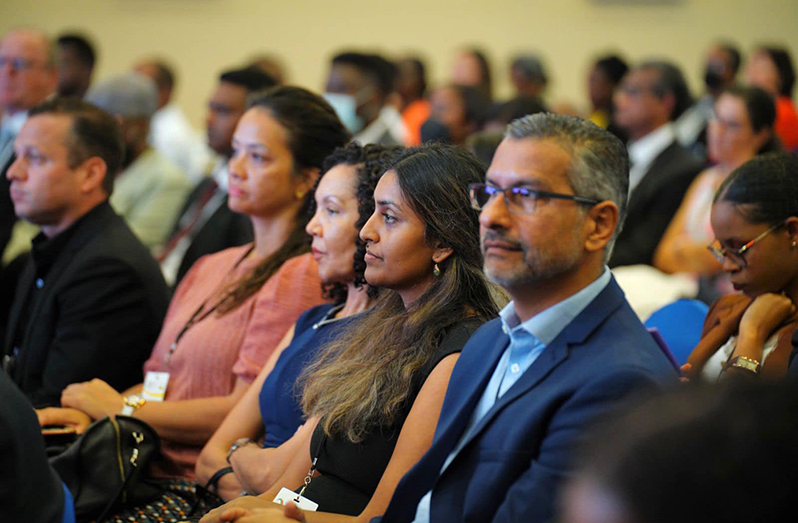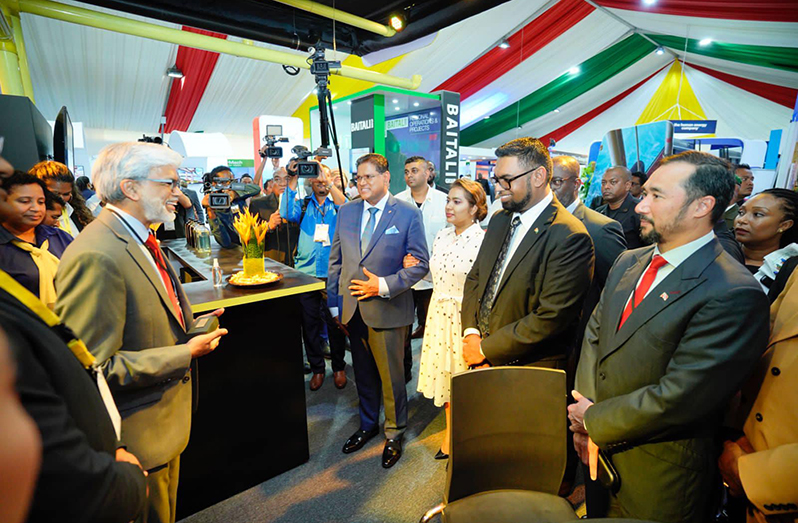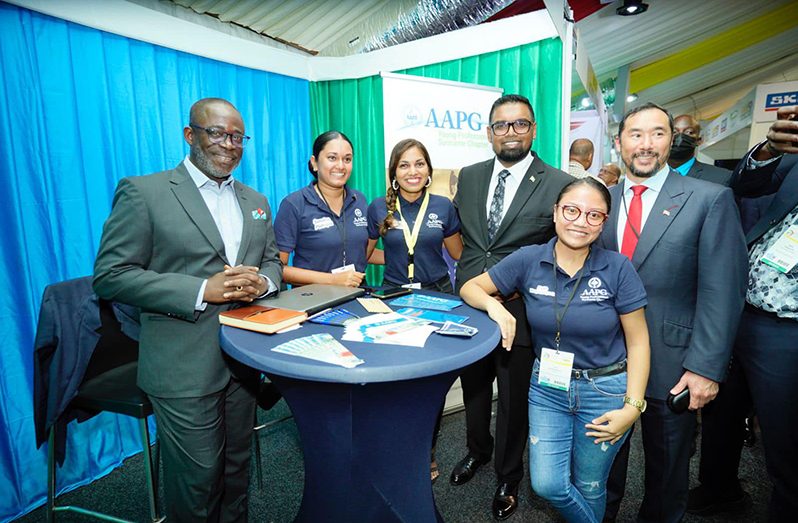–to guide Caribbean nations in areas for investment
SEVERAL Caribbean Community (CARICOM) member states have come together to advance work on a regional energy strategy that will guide Caribbean nations in areas for investment.
This was announced by President, Dr. Irfaan Ali on Monday, while delivering remarks during the opening ceremony of the Suriname Energy Oil and Gas Summit in Paramaribo, Suriname.
According to President Ali, discussions on the strategy have already begun with President of Suriname, Chandrikapersad “Chan” Santokhi, and Prime Minister of Trinidad and Tobago, Dr. Keith Rowley and his Energy and Energy Industries Minister, Stuart Young.
“We are proposing to move rapidly on a regional energy strategy to look at all the potential areas for investment, to bring investors together; bring the markets together, and see how quickly, and transparently as possible we can unlock those opportunities,” Dr. Ali explained.
He elaborated: “By the end of the next quarter, investors can have a fair and clear understanding of what the energy strategy and the energy needs of this region will be, and where are the future opportunities, and what are we trying to unlock, so that we can have a clear direction as to where we are going.”

It is expected that the full strategy will be presented in Suriname in a few weeks.
According to President Ali, the strategy will also include Brazil, which is not a part of CARICOM, but, nonetheless, is currently in negotiations with Guyana and Suriname for the development of an energy corridor.
“CARICOM members like Guyana, Suriname, Trinidad and Tobago; we have to come together to advance a solution not only for the region but one that incorporates Northern Brazil. We have to remove bureaucratic delays, and advance dynamism; we have to work on unlocking our natural gas potential, because that can contribute to rebalancing the supply side for the region,” President Ali said.
He noted that with several Caribbean nations now involved in oil-and-gas production or exploration, it is imperative to put together a developmental strategy that shows how the rest of the region’s economy will be built out from the revenue that comes from oil and gas.
The President listed renewable energy, food security, and the development of climate resilience infrastructure as some of the key areas where investments will be considered.

“The region is advancing a very elaborate and ambitious food strategy; we have to be able to fund this strategy [as well as] our climate resilience strategy,” President Ali said.
He noted that the region is also facing a number of challenges that require funding to overcome; challenges such as slow GDP growth, continuous supply chain disruptions, rising inflation, lack of capital to invest, the lack of technology or expertise, and a need for digitisation.
“If we can’t find the resources to invest in these areas, our economies will continue to lag behind,” President Ali said, adding: “The potential of energy security in the region, undoubtedly, is enormous; not only with the possibilities in Guyana, Trinidad and Suriname, but also with all the Caribbean States.”
Under the Production Sharing Agreement (PSA), Guyana receives two per cent royalty, and 50 per cent profit oil, which is what remains after the producer recovers its production cost. (Excerpted from the PSA)



.jpg)








